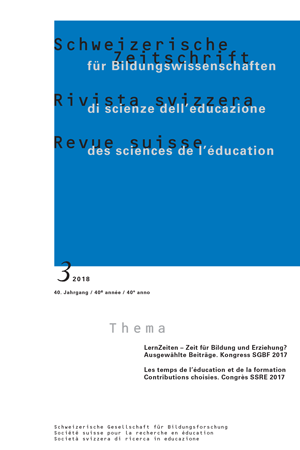Self-Efficacy in Behaviour Management. Development and Validation of a Measurement Scale
DOI:
https://doi.org/10.24452/sjer.40.3.5124Keywords:
Behaviour management, classroom management, self-efficacy, middle school, teacher trainingAbstract
Research on self-efficacy and its measurement shows that it isn’t a global characteristic, but rather a set of beliefs that an individual may have about different aspects of his or her functioning. This article presents the development of the self-efficacy scale for behaviour management in secondary school classrooms as well as initial elements of validation. It was developed and validated according to Bandura’s (2006) recommendations among a population of teachers throughout two stages: a pilot phase followed by a test phase. Content validity was verified through thorough conceptual analysis and inter-judicial agreement. Construct validity was verified using a principal component analysis during the pilot phase and then a confirmatory factor analysis during the test phase. These analyzes raise questions regarding the validation of the used model. The final version contains 16 items and satisfies the conditions of reliability and criterion validity.
Downloads
Downloads
Published
Issue
Section
License
Copyright (c) 2019 Malika S. Dessibourg

This work is licensed under a Creative Commons Attribution 4.0 International License.



